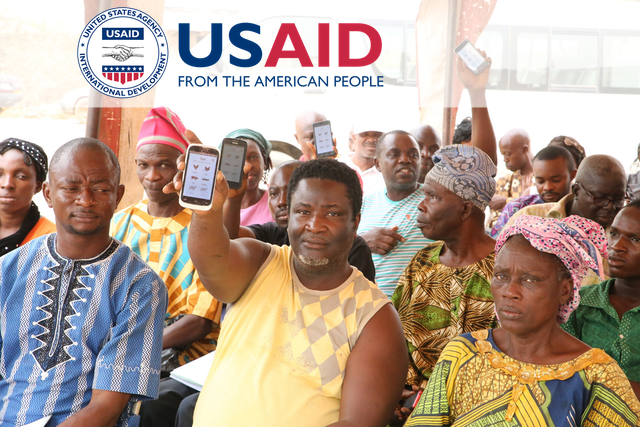
Why Does USAID Fund Digital Development Programs?
USAID funds Information and Communication Technology for Development (ICT4D) projects as part of its broader mission to promote global development, reduce poverty, and foster economic growth in developing countries. ICT4D projects leverage technology to address a wide range of development challenges, from improving healthcare and education to boosting agricultural productivity and enhancing governance.
USAID issues grant funding to ICT4D programs across Missions, Washington Operating Units, and implementation partners. The Agency seeks to advance digital initiatives in healthcare, education, agriculture, economic development, and other sectors.
8 Reasons Why USAID Grants Funds to ICT4D Projects
USAID grants for ICT4D projects to fund pivotal activities that harness the potential of technology to achieve development goals. These projects align with USAID’s commitment to innovation, partnership, and sustainability in tackling global challenges, ultimately contributing to a more equitable, prosperous, and secure world.
1. Enhancing Access to Information
ICT4D projects provide individuals and communities in remote or underserved areas with access to critical information. This can include health information, educational resources, weather forecasts for farmers, and market prices for their products. By democratizing access to information, ICT4D initiatives empower people to make informed decisions that can improve their livelihoods and well-being.
2. Improving Service Delivery
Technology can streamline and improve the efficiency of service delivery in sectors like health, education, and public administration. For example, mobile health (mHealth) applications can facilitate remote diagnostics and patient monitoring, while e-government platforms can simplify processes for accessing public services and reduce corruption by increasing transparency.
3. Fostering Economic Growth
ICT4D projects stimulate economic growth by providing tools that help businesses operate more efficiently and access new markets. Digital financial services, such as mobile banking and digital payment systems, enable transactions and financial inclusion for populations that are traditionally underserved by banks. This can spur entrepreneurship and create economic opportunities in rural and low-income areas.
4. Enhancing Education and Skill Development
Technology-enhanced learning platforms offer scalable solutions for education and skill development, crucial for empowering individuals and communities. E-learning platforms can reach learners who are otherwise excluded due to geographic, economic, or social barriers, providing them with the skills needed to participate in the global economy.
5. Promoting Inclusivity and Participation
ICT4D initiatives can foster more inclusive societies by enabling the participation of marginalized groups, including women, people with disabilities, and ethnic minorities, in the digital economy and society. Technology can provide these groups with platforms for expression, advocacy, and community building, contributing to more equitable development outcomes.
6. Facilitating Data Collection and Analysis
Technology plays a critical role in collecting and analyzing data for development planning and decision-making. ICT tools can enhance the monitoring and evaluation of development projects, enabling real-time data collection and insights that inform policy and program adjustments. This data-driven approach helps ensure that development interventions are effective and responsive to the needs of target populations.
7. Supporting Environmental Sustainability
ICT4D projects also contribute to environmental sustainability by enabling smarter resource management and promoting sustainable practices. For example, precision agriculture technologies help farmers optimize water and fertilizer use, reducing environmental impact and enhancing food security.
8. Responding to Crises and Enhancing Resilience
In emergency situations, such as natural disasters or health crises, ICT tools can facilitate rapid response and communication, helping to save lives and reduce the impact of disasters. Moreover, ICT4D can build resilience in communities by providing early warning systems and enabling better preparedness for future crises.











